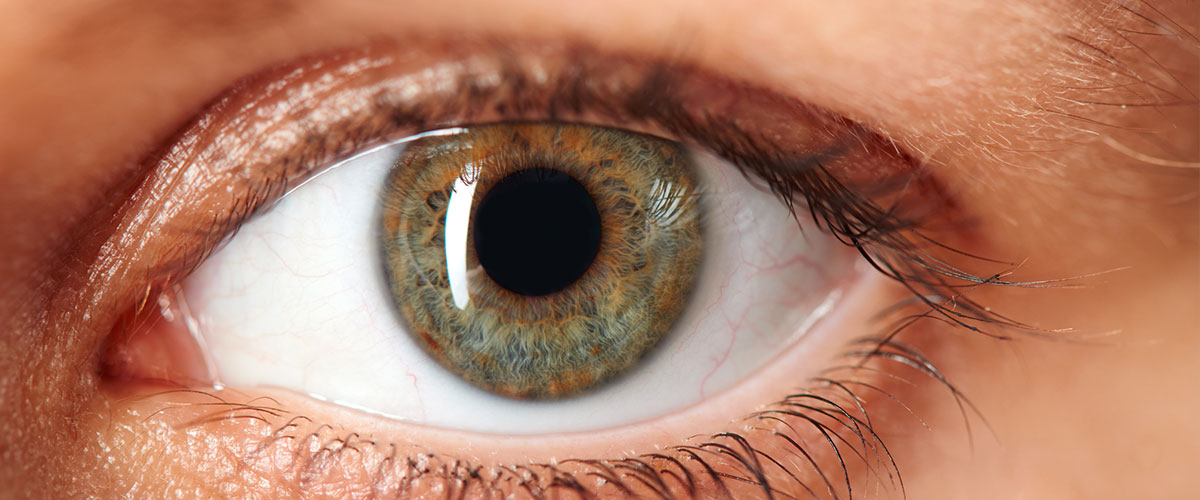See the light: early treatment of macular degeneration helps save eyesight

They say our eyes are the windows to the soul. More pragmatically, though, our eyes are the windows to the world around us. The ability to see is arguably the most important of the five senses, as we perceive up to 80 percent of all impressions by means of sight. There are many health conditions that can compromise vision, most notably macular degeneration, which is the leading cause of vision loss, affecting more than 10 million Americans – more than cataracts and glaucoma combined.
“Macular degeneration is a condition where damage occurs to the light sensing cells of the macula, the small area at the center of the eye’s retina responsible for most of our central vision,” explains Dr. Phillip J. Calenda, a board-certified ophthalmologist at NewYork-Presbyterian Hudson Valley Hospital. “There are two basic types: ‘wet,’ when there is fluid leakage from abnormal blood vessels into the macula, and ‘dry,’ when the damage occurs without fluid leakage. Approximately 90 percent of the cases of macular degeneration are the ‘dry’ type.”
Advancing years increases the risk of developing age-related macular degeneration (AMD). In 2010, approximately 2.07 million Americans had the disease, and that number is expected to grow annually. While there is no cure for AMD, some treatments may delay its progression or even improve vision. Says Dr. Calenda, “In some cases, AMD advances so slowly that vision loss does not occur for a long time, while in others, the disease progresses faster and may lead to a loss of vision in one or both eyes.”
Age is not the only risk factor for developing macular degeneration. Other risks include family history, genetics, far-sightedness, and having light-colored irises. Unhealthy lifestyles, which include smoking and obesity, often result in cardiovascular disease and may contribute to macular degeneration as well. Notes Dr. Calenda: “Addressing risk factors that are within one’s control are important during the patient’s visit.”
Symptoms: what to look for
Dry macular degeneration symptoms usually develop gradually and without pain. Symptoms to be aware of include:
- visual distortions, such as straight lines seeming bent
- reduced central vision in one or both eyes
- the need for brighter light when reading or doing close work
- blurriness of printed words, including difficulty reading
- decreased intensity or brightness of colors
- difficulty recognizing faces
- difficulty seeing well while driving
The importance of regular eye exams
Patients 60 and older should have annual eye exams that include dilation of pupils to detect for signs of macular degeneration and other conditions like glaucoma. If patients are experiencing symptoms they should immediately be referred to an ophthalmologist. However, eye tests are not just for seniors. Says Dr. Calenda, “For anyone, no matter what age, if there is loss or distortion of central vision, the person should immediately seek care to avoid further loss.”
Although macular degeneration is considered an incurable eye disease, certain treatments for AMD may delay its progression and help prevent severe vision loss. “Treatments may vary so it’s important that the patient speak to the doctor to develop a treatment plan that encompasses this condition,” says Dr. Calenda. One option may involve the use of a class of drugs known as anti-angiogenics, injections used to help block the leaking from abnormal blood vessels that cause wet macular degeneration. Another option is laser therapy, which can sometimes be used to destroy actively growing abnormal blood vessels from AMD.
For those with dry macular degeneration, a vitamin regimen of C and E, beta-carotene, zinc, and copper has proven to be helpful in slowing the progression.
Says Dr. Calenda, “Today, important studies continue that will help us increase our knowledge about the ways we can prevent macular degeneration from the onset.” Suggestions known to help prevent macular degeneration include protecting the eyes from prolonged sun exposure; eating a diet that’s low in fat and cholesterol and high in green, leafy vegetables; and choosing foods with a high glycemic index and that are rich in antioxidants. “Equally important is to lower excess weight and stop smoking. Even small changes can make a big difference not just with eye health, but overall health as well.”
To find an ophthalmologist, call 877-697-9355.



